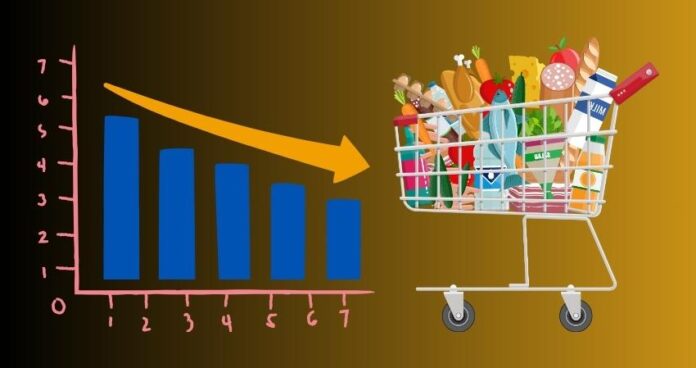ISLAMABAD: Pakistan’s year-on-year inflation, measured by the Sensitive Price Index (SPI), has dropped to 4.16% for the week ending November 14, 2024, marking the lowest level in six years.
According to data from the Pakistan Bureau of Statistics (PBS), this marks the smallest year-on-year increase since October 2018.
The decrease in the annual inflation rate is attributed to higher prices for key food items, such as pulses, milk, beef, and vegetables, as well as significant price reductions in staples like wheat flour, diesel, and petrol.
The year-on-year increase in SPI was primarily driven by sharp price hikes in essential items, including pulse gram (up 74.53%), pulse moong (up 38.88%), powdered milk (up 25.74%), and beef (up 23.02%). Other notable increases were seen in onions (up 22.78%), garlic (up 17.41%), and gas charges for the first quarter of 2024 (up 15.52%).
While food and energy prices contributed to the upward trend, several essential items saw price reductions. Wheat flour, a staple for many households, dropped by 34.98%, while chilies powder (down 20%), diesel (down 13.92%), and petrol (down 11.64%) also saw significant price cuts. Other items such as tea, rice, tomatoes, and cooking oil also experienced price declines.
On a week-on-week basis, SPI-based inflation increased by 0.55% due to notable price increases in tomatoes (up 16.86%), eggs (up 5.01%), garlic (up 4.30%), and LPG (up 4.10%). A total of 24 out of the 51 items tracked by SPI saw price increases, while 6 items recorded price declines. The remaining 21 items remained stable.
Despite the weekly increase, the lower year-on-year inflation is a positive sign for consumers. Reducing the prices of critical items like wheat flour and diesel is expected to ease some of the financial burden on households, though the rise in food costs continues to put pressure on family budgets.




